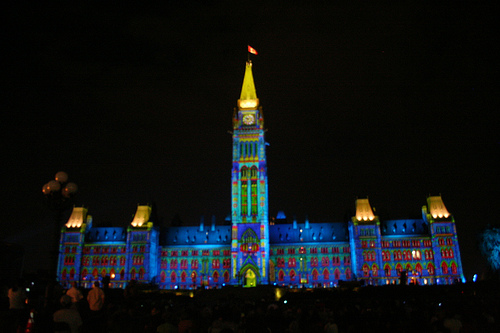“Truth is stranger than fiction, because fiction is obliged to stick to the possibilities.”
– Mark Twain
I just read two recent political pot-boilers, back to back. If this fiction is stranger than the truth, we are in real trouble.
Given the pathetic state of the national news media, with so few reporters allowed the time and resources to actually uncover news, it may be that the clearest truth about what is happening in Ottawa will come from our fiction.
Reading these books in sequence was purely coincidental. Linda Svendsen’s publishers had been kind enough to send me a copy of her book Sussex Drive – Inside the backrooms and the bedrooms of the nation, last fall when it was released. It was in my pile of books I wanted to read, but went to the top of the pile thanks to a conversation I had at the Galiano Island Writers Festival. Annabel Lyon (B.C. writer of The Golden Mean, nominated for the Giller Prize, the Governor General’s award for literature, and winning the Rogers fiction prize, and its sequel The Sweet Girl) and I started chatting at the Galiano Island festival and she highly recommended Svendsen’s new novel. I had just started Sussex Drive when one of my favourite Hill reporters, Stephen Maher (half of the MacGregor-Maher team working on the robocalls scandal) came out with his first novel, Deadline.
Both books revolve around life on Parliament Hill. Both are clearly fiction, with events outside even my most cynical take on what goes on in Ottawa. (Cars blowing up, murders, blackmailing etc.) Still the storylines of both track very closely to real-life events.
Sussex Drive features a nasty Prime Minister who prorogues Parliament twice and a fashionable Governor General from a small African country who has to grapple with the decisions. Deadline has Auditor General reports accusing the government of zero record keeping and waste of money in building new prisons, as well as shady dealings of Chinese state-owned enterprises buying up the oil sands. Both involve a lot of blackberry messages. However, it is not the plotline nor the fictitious events and personalities that make me see both books as speaking to a larger truth. Even the banal details assume a level of cynicism in politics, a manipulation of media, and a persistent effort to keep the public in the dark that ring very true.
I heartily recommend both as great reads — entertaining page-turners that would also make successful Canadian movies. Still, there is something in Svendsen’s prose that made me stop and wonder how she so accurately knows the threats to our democracy:
“It was clear now that she could do nothing at all to help Canada. Its democracy has early-onset Alzheimer’s. Its democracy was in a media-induced ethical coma; it had permanent parliamentary amnesia…”
Maybe fiction can help wake us up.
Photo: jessica @ flickr/Flickr



